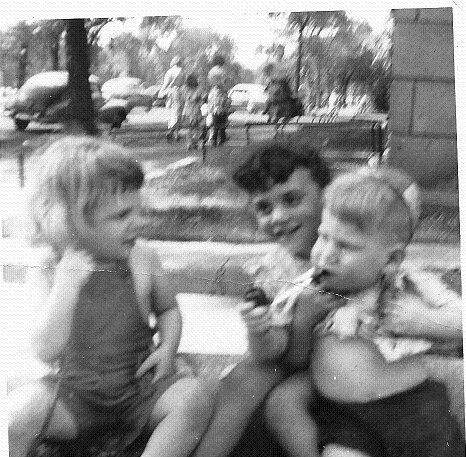by Larry Teren
It seems more and more when one acts in a selfish manner it brings out the discourtesy in another. To wit:
Act One
Our hero drives his car onto the ramp leading to his condo’s lower level garage in order to get to his assigned space. He puts his foot to the brake about seven feet from the overhead garage door, grabs the thumb size remote control, watches the red flashing light start to signal that the electric door is raising up. He now has to maneuver quickly to make a hard right turn into the garage area but with caution. There is always the chance that a car may be trying to exit the garage from the opposite direction. The driver can never be sure that is he who causes the red flashing light to signal or maybe just doesn’t care and figures whoever gets to the rising door first has the right of way.
There is another obstacle he must consider. What if another condo owner has his car tail closely behind our hero’s car. Forget the fact that there is a stated rule that only one car from either direction may pass through the empty space while the door is in the up position. The other driver must wait for the door to go back down and use his or her clicker to force it back up again.
And what about the fact that our hero’s assigned parking spot is two stalls from the door.? He has to not only make a hard right but then also stop quickly, pull back in a forty-five degree angle reverse and then thrust forward again to pull neatly in to his car’s spot. All this while he has to be cognizant that there may be a not so nice tailing driver who has no interest in waiting for the door to go back down so they he or she will click it back up after a safe time span.
This last scenario does indeed occur and our hero puts on the car’s brakes before doing the reverse. He then lurches the auto forward to maneuver into its spot and looks back to the other car and gives the driver a nasty stare. The other driver reluctantly pauses but refuses to wait for the door to go up and down and forces his little sports car into the garage and zooms to his spot.
Our hero gets out of his car and starts walking to the garage level lobby to wait for the elevator but instead pauses waiting for the other driver to get out of his car. After a couple of minutes, the other driver does and he tells our hero that our hero is at fault for delaying him to pass through. Our hero tells the antagonist that the condo rules clearly state only one car passes through a door in the open position at a time. The antagonist says, “how am I supposed to know that you park so close to the door?” Our hero tells him that it does not make a difference- “only one car at a time”.
Not that it makes a difference, but the antagonist has been living in the building for a couple of years while our hero has been there for twenty. And that the antagonist was the hero’s next door neighbor until a week or so earlier when he sold his unit but moved down a floor which is why he is now parking in the same garage as our hero. (There are four garages and when he lived next door, his devil-may-care driving act was shared with other unit owners in one of the other three garages.)
Act Two
Our hero walks out the front lobby of the condo building, turns left through the half-arc parking lot that parallels the street. A car is stopped at the mouth of the west driveway of the lot to where our hero needs to pass. The car is positioned so that it is blocking the cross-path of the walkway and not leaving room to addle along its side to the walkway. Our hero must cross over on the lawn to get to the sidewalk. He notices a man half in and out of the car cleaning both the windshield and roof with a tissue. He mentions to him that he is in a bad spot and should move up a bit. The man looks at him with contempt and says “you must have such a pathetic life that you have to tell someone to move their car after an accident.” Our hero looks about and doesn’t see a hint of a damaged car; just a man cleaning a bit of a mess most likely caused from spilling fluid while making a quick stop. Our hero says that he is sorry that the other fellow experiences discomfort but explains that his car is blocking passage, that he- our hero- lives there and has a right to tell him to move the automobile another five feet. He continues walking on the sidewalk, turns back about a minute later, and sees that the “accident victim” has moved very quickly through the parking lot driveway to the east end and high-tailed it out of there.
Act Three
Our hero wakes up in the middle of night thinking how lucky he is that neither bad guy carries a concealed weapon. Not that he would have felt remorse for his stupidity in the brief moment it would take the antagonist to end his “pathetic life”. Rather, remorse for how many people would later say, “ah, he had it coming.”
